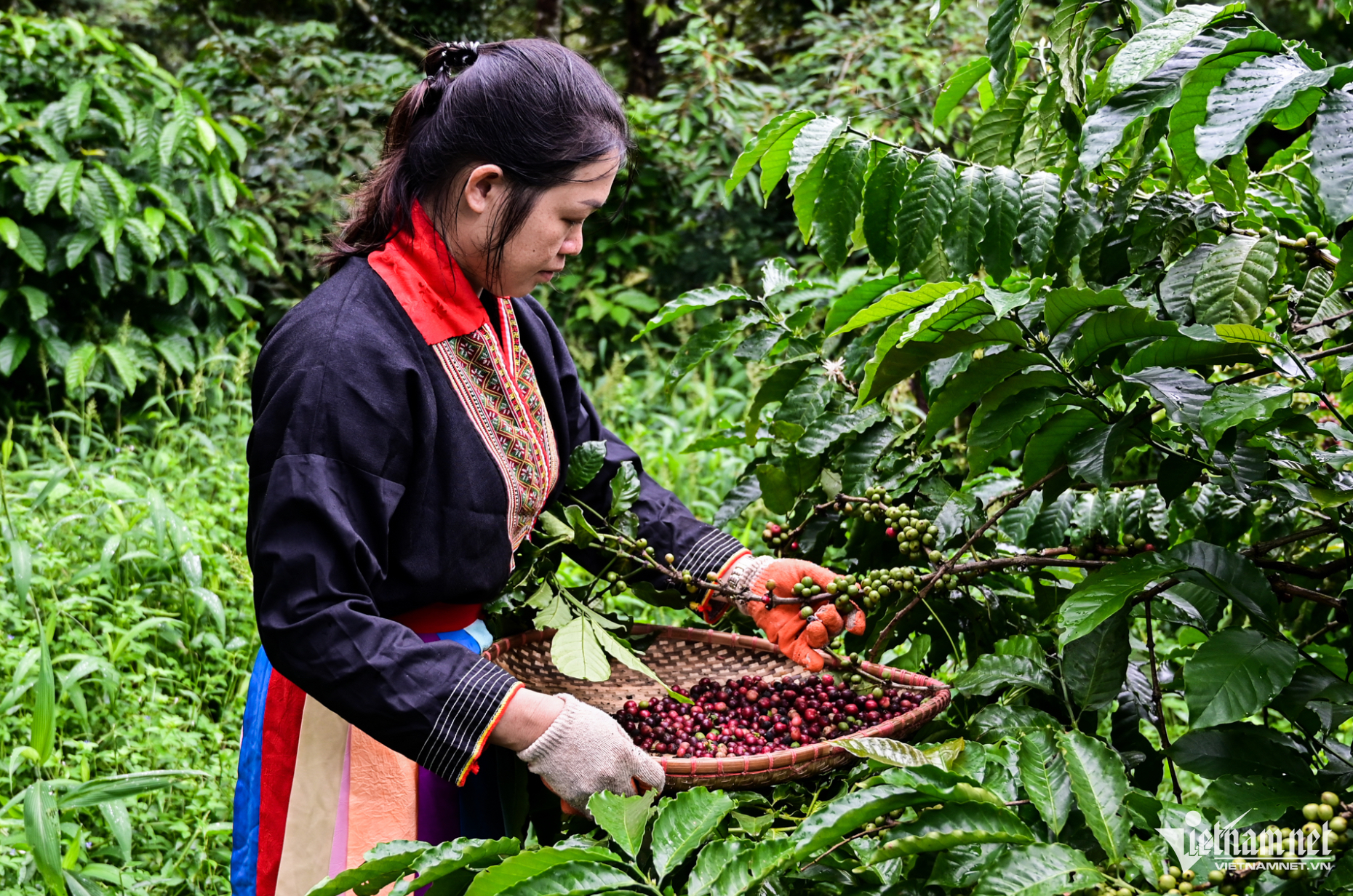
Typically, coffee prices decline during the harvest season due to abundant supply. However, this year, prices have soared, bringing massive profits to coffee farmers in Vietnam’s Central Highlands.
On November 29, Robusta coffee on the London exchange (January 2025 contracts) hit $5,565 per ton, surpassing the previous record of $5,527 per ton set on September 26. Meanwhile, Arabica coffee on the New York exchange (March 2024 contracts) climbed to 323.05 cents/lb, the highest level since 1977.
These unprecedented price movements indicate concerns about future supply shortages, with some experts predicting that coffee may soon become a luxury commodity.
In Vietnam’s domestic market, coffee prices have also risen sharply. On the morning of November 29, raw coffee beans reached 131,200 VND per kilogram, approaching the historic high of 134,000 VND per kilogram recorded in April.
Farmers profit amid unusual market dynamics
In the Central Highlands, the coffee harvest is underway. Normally, prices dip during this time due to increased supply, but this year both fresh and processed coffee prices have risen significantly.
“Compared to this time last year, coffee prices have doubled,” said Nguyen Van Hoan, a coffee farmer in Dak Lak. He noted that fresh coffee cherries sold for just 17,000 VND per kilogram last year, while raw coffee beans fetched under 60,000 VND per kilogram.
“This year, fresh coffee sells for over 30,000 VND per kilogram, even higher than the price of processed beans in 2020. Raw beans are selling for over 130,000 VND per kilogram, which means profits are substantial for farmers,” he added.
Hoan, who owns five hectares of coffee, expects to harvest around 20 tons of beans despite lower yields caused by unfavorable weather. At current prices, he anticipates earning 2.6 billion VND, with a profit of approximately 1.7 billion VND after expenses.
Many farmers, however, are holding onto their stock, hoping prices will rise further. “I’ve sold a portion of my harvest to hedge against the risk of prices falling sharply, as they did in April and May,” Hoan explained.
Nguyen Van Tao, a farmer in Dak Mil, Dak Nong, reported a similar situation. With an estimated yield of 27 tons, he expects to earn 3.5 billion VND, with a profit of about 2 billion VND.
Vietnam’s role in the global coffee market
Vietnamese coffee farmers have an average yield of 3–5 tons per hectare, depending on the variety and region. Production costs are estimated at around 40,000 VND per kilogram, leaving farmers with significant profits as prices soar to 125,000–130,000 VND per kilogram.
“Farmers can easily earn billions of VND if they grow at least three hectares of coffee,” said Nguyen Nam Hai, Chairman of the Vietnam Coffee and Cocoa Association (VICOFA).
The demand for Robusta coffee has grown, with global roasters increasing the Robusta blend ratio to 30–40% from the previous 20–30%. As the world’s leading Robusta producer, Vietnam plays a critical role in the global coffee market.
Despite this, adverse weather, including prolonged rain, has delayed the harvest and reduced coffee quality this year. Additionally, farmers have begun intercropping coffee with other crops, such as durian, to meet rising demand from China, further tightening coffee supplies.
As of mid-November, Vietnam had exported over 1.17 million tons of coffee, generating a record $4.7 billion in revenue. Exports to key markets like Spain, Indonesia, and the Netherlands have surged, with some countries doubling their spending on Vietnamese coffee.
Risks and recommendations
While high prices benefit farmers, experts warn that prolonged price hikes could lead importers to alter their coffee blends, potentially impacting Vietnam’s exports.
“Vietnamese Robusta prices are currently too high, drawing complaints from importers,” said a VICOFA representative. Although buyers continue to purchase due to consumer preference for Vietnamese coffee, sustained high prices may prompt them to explore alternatives.
“A price of around 100,000 VND per kilogram would balance the interests of farmers, exporters, and importers, ensuring sustainable growth for Vietnamese coffee,” the representative concluded.
Tam An